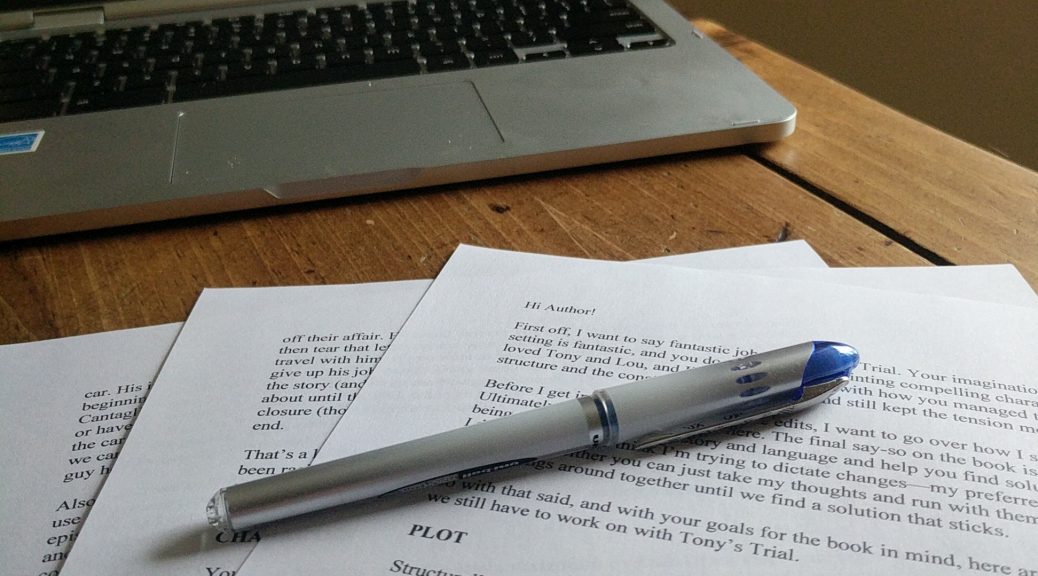Developmental Editing Tips
We’re taking a break from our usual focus on the author’s point of view to give some tips about how to do developmental editing. These tips should be useful to budding editors as well as authors learning how to give critique. They’re based on a decade of experience giving and receiving editing, which boils down to thousands of hours and hundreds of novels’ worth of editorial comments. We’ll focus the list on three basic rules a good developmental editor should follow.
It’s not about you
Always remember that it’s not about you. The editor’s job is to step out of their own head and imagine what a genre’s readers will think. You are not a critic, and your personal preferences have no place in your judgment of whether a piece of writing is succeeding. If you find yourself writing “I think” or “I feel” too often, and especially if you’re using blanket statements like “There’s too much telling in this scene,” you’re probably focused too much on your own experience of the story. There are no rules in writing. There are only reader expectations, and whether or not the writer is fulfilling them in a satisfying way.
Developmental editing is constructive
Second, always remain constructive. Editors who go too long without undergoing developmental editing themselves often get cranky and cantankerous. Never fall into the trap of frustration, and never take it out on the writer. Remember: you have no job without them. To that end, always check your comments before sending them back. If you’re frustrated, let it out in your initial pass. Then edit yourself before you turn over the manuscript. “What’s happening here?” is infinitely more constructive than “What’s happening here????” All you have to do to get there is delete a few question marks.
Do the work
Lastly, do the work. Not just the work of developmental editing, but the preparation you need to do the job well. Your formal education, if you have it, probably focused on literary fiction. Your reading background probably pushed you naturally into one or two, or maybe three, genres. But as an editor you’ll get submissions across every genre under the sun. Know your limits, and if you take on a project that will stretch you, do the work to become an expert in the genre. Ask the author for comparison titles and read them. Dig up craft books written by genre experts and learn the genre’s conventions. Communicate throughout the process about what kind of mystery/thriller/romance/adventure novel the author is writing. It’s not easy expanding your genre repertoire, and you’re fooling yourself if you think you can just wing it. If you try, your developmental editing will suffer, and the writer will bear the brunt of your mistakes. So do the work.
Next up, we’ll talk about developmental editing swaps, where two authors trade edits of one another’s work. You can also return to our developmental editing resources.









